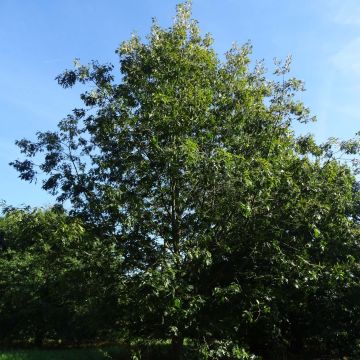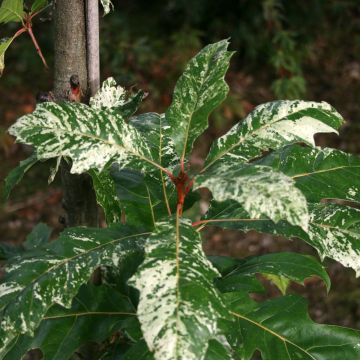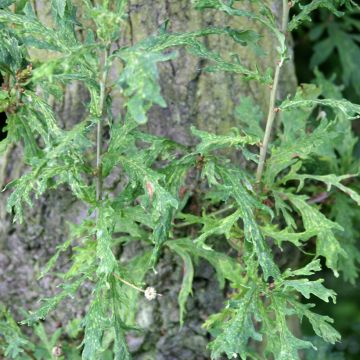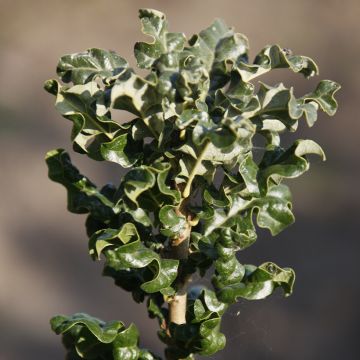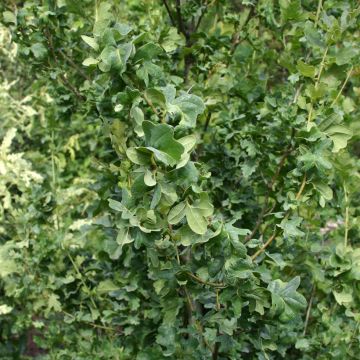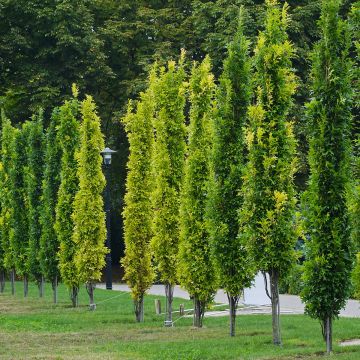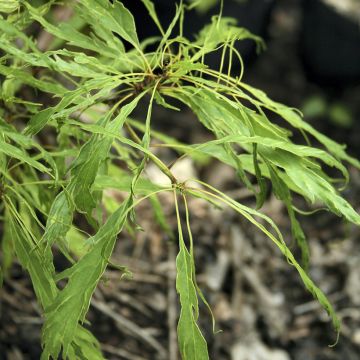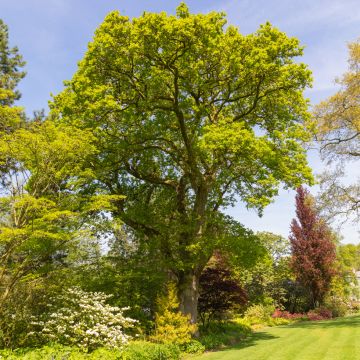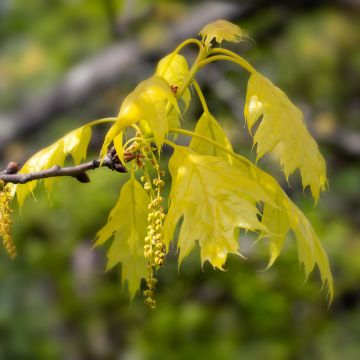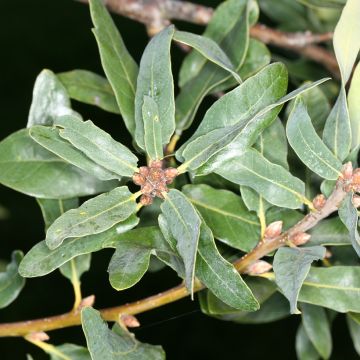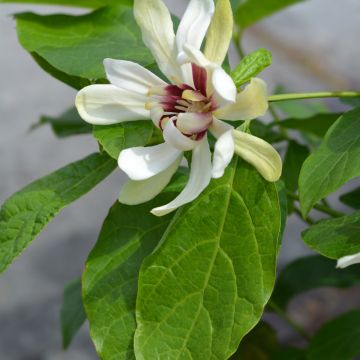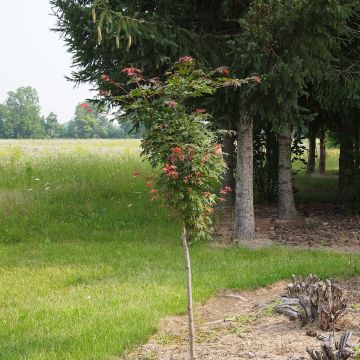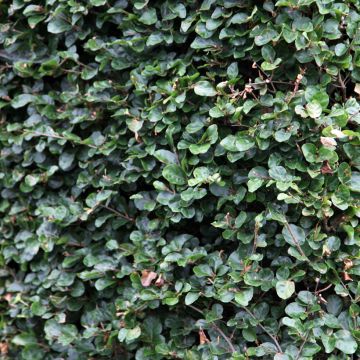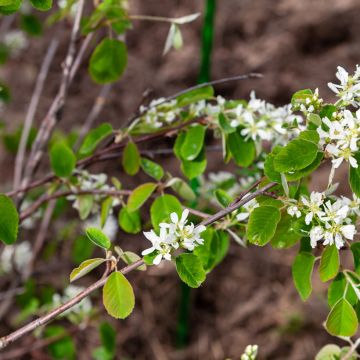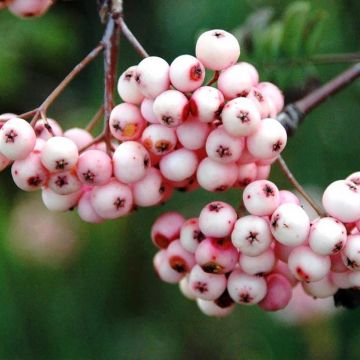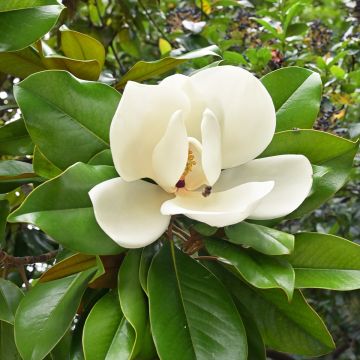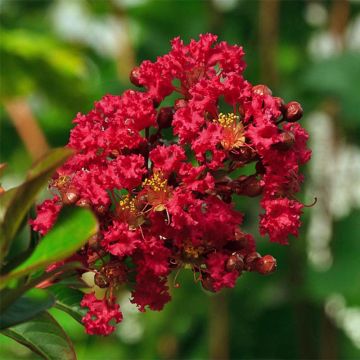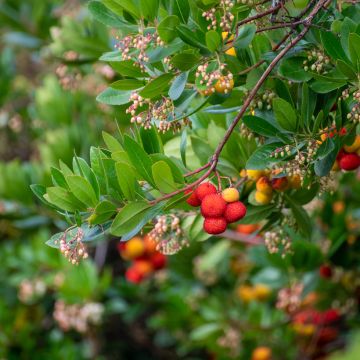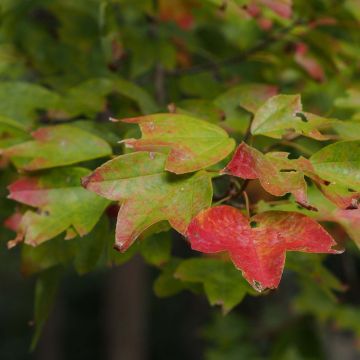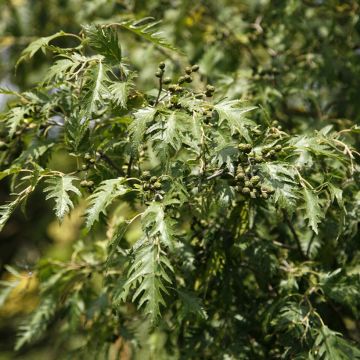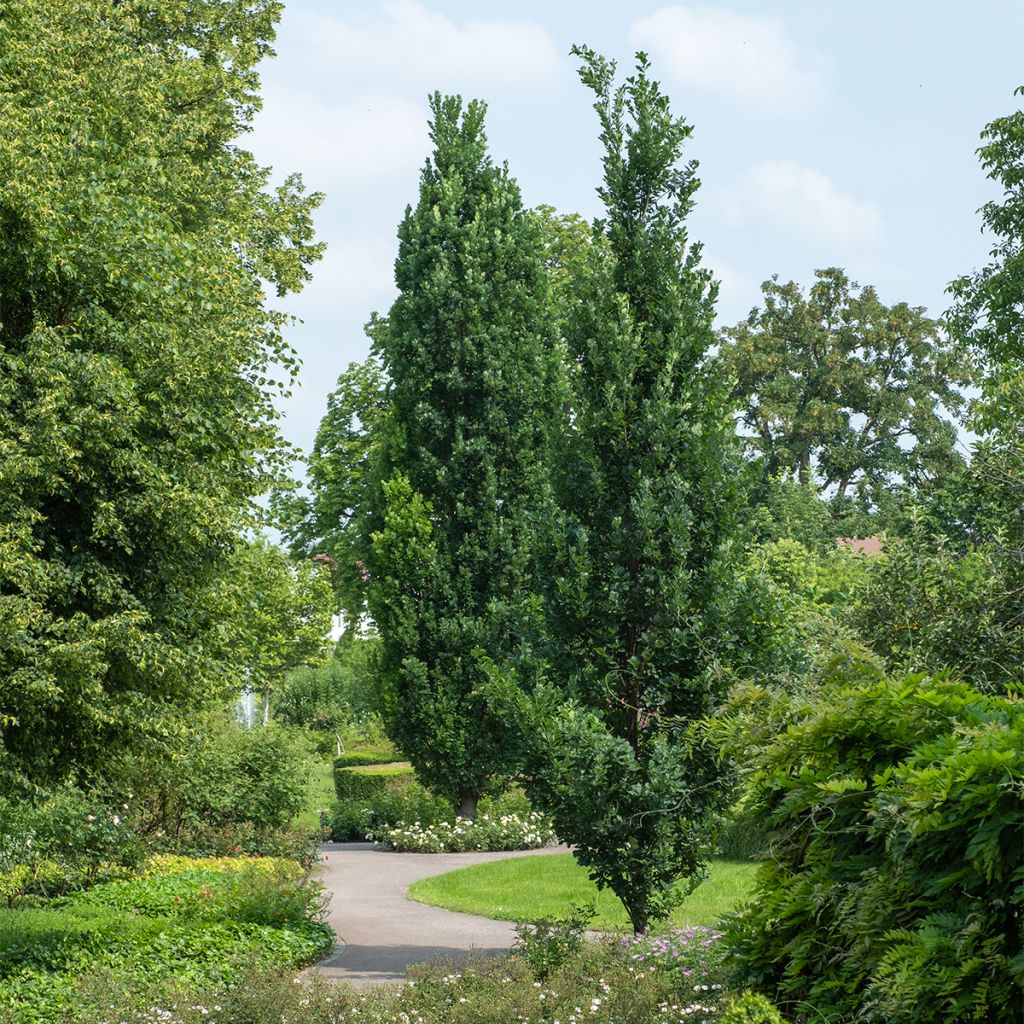

Quercus robur Fastigiata Koster
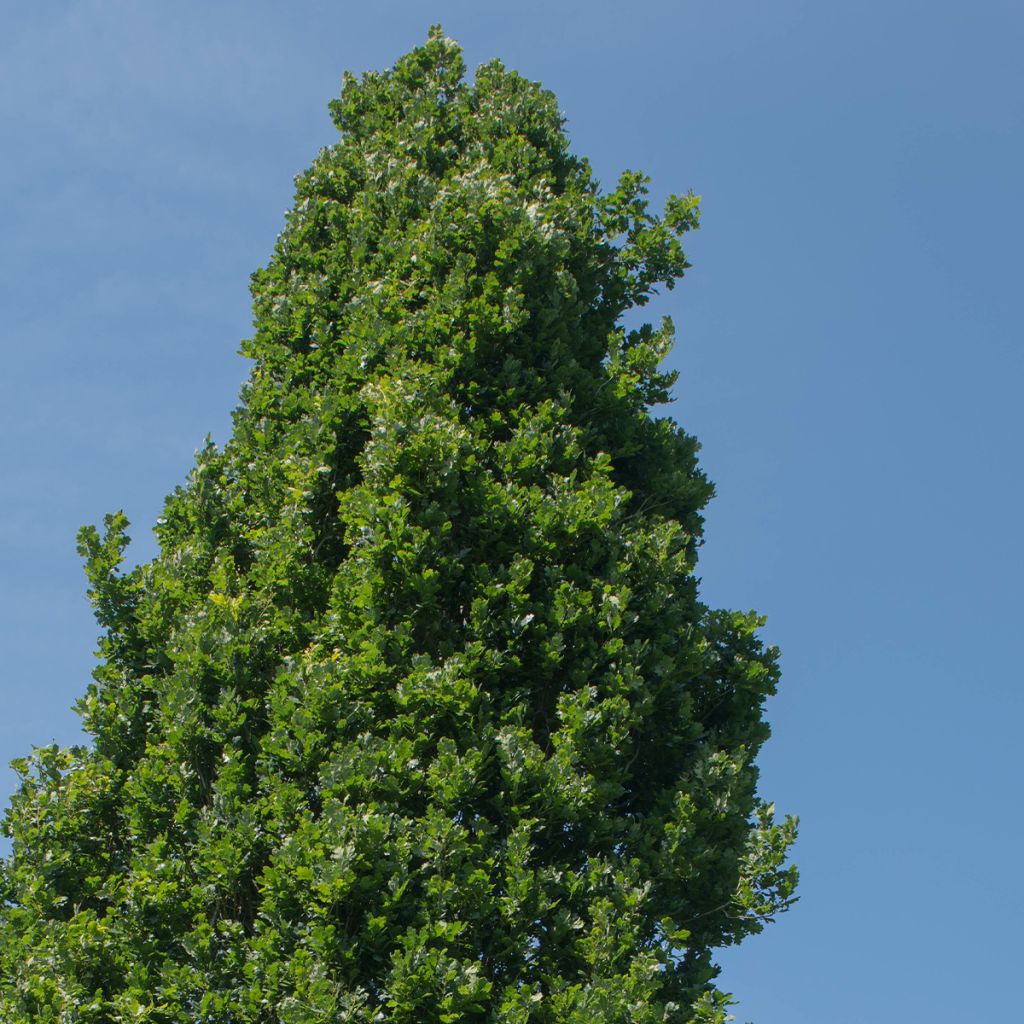

Quercus robur Fastigiata Koster
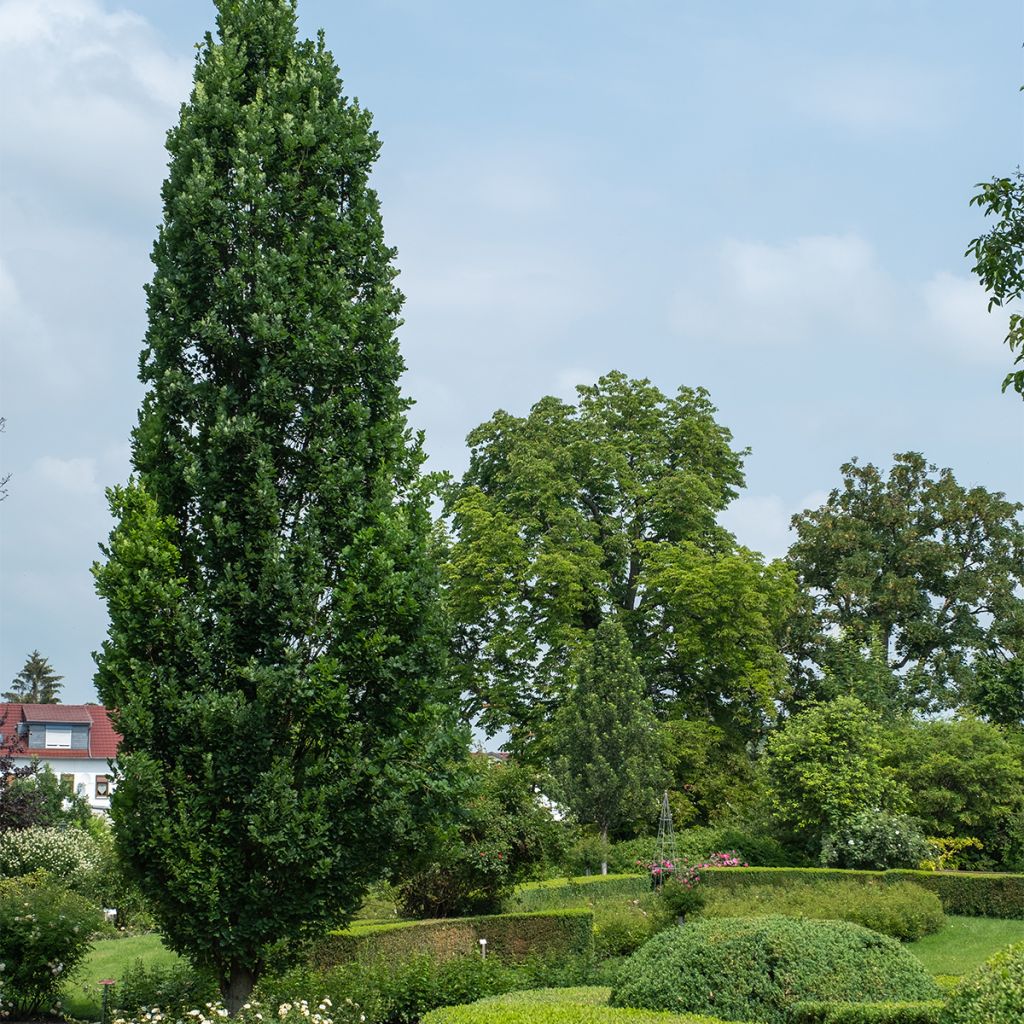

Quercus robur Fastigiata Koster
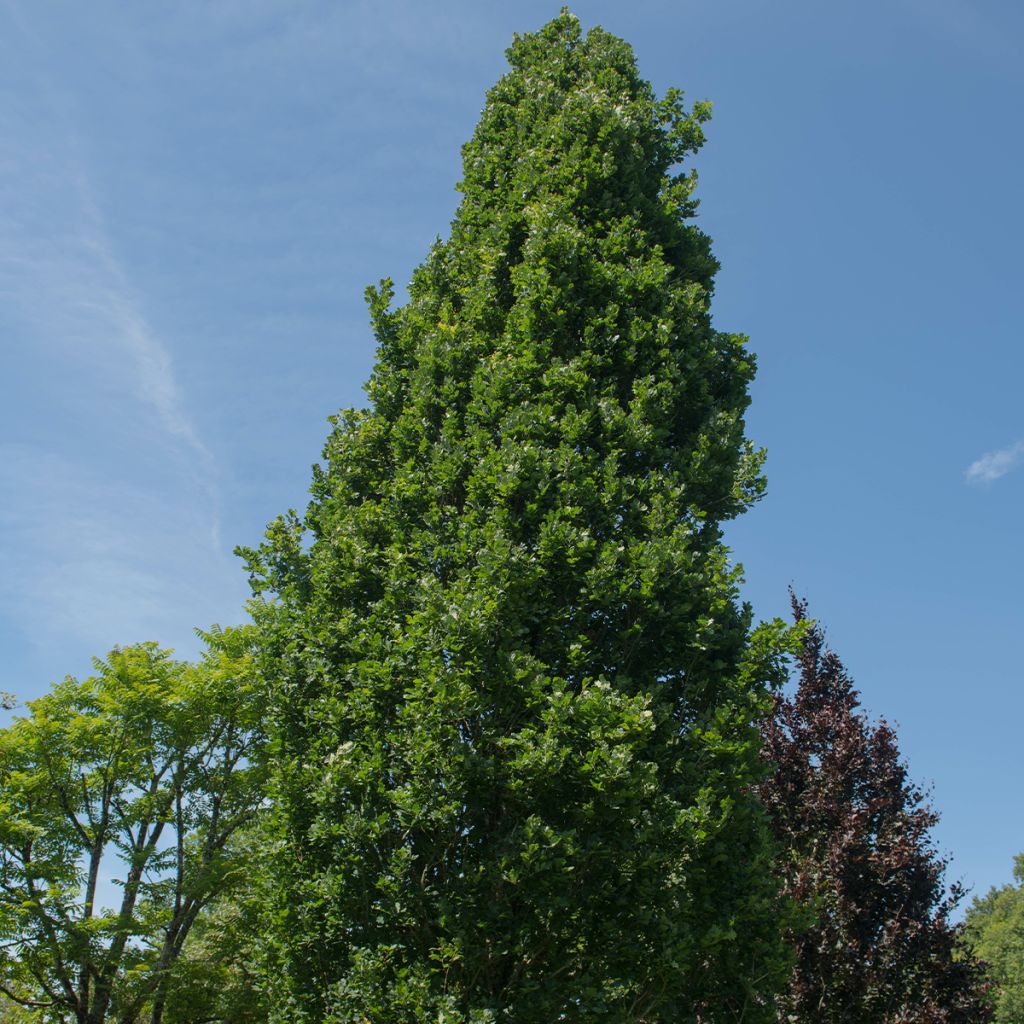

Quercus robur Fastigiata Koster
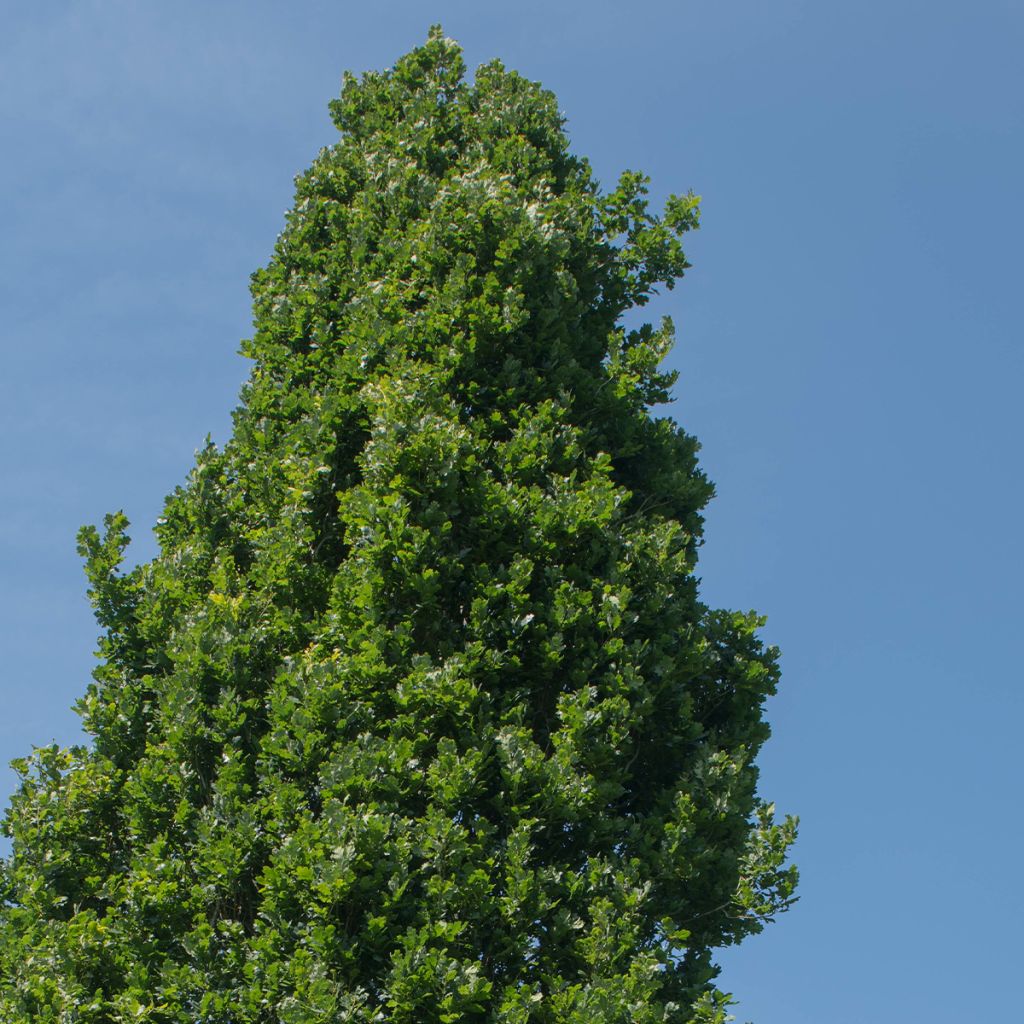

Quercus robur Fastigiata Koster
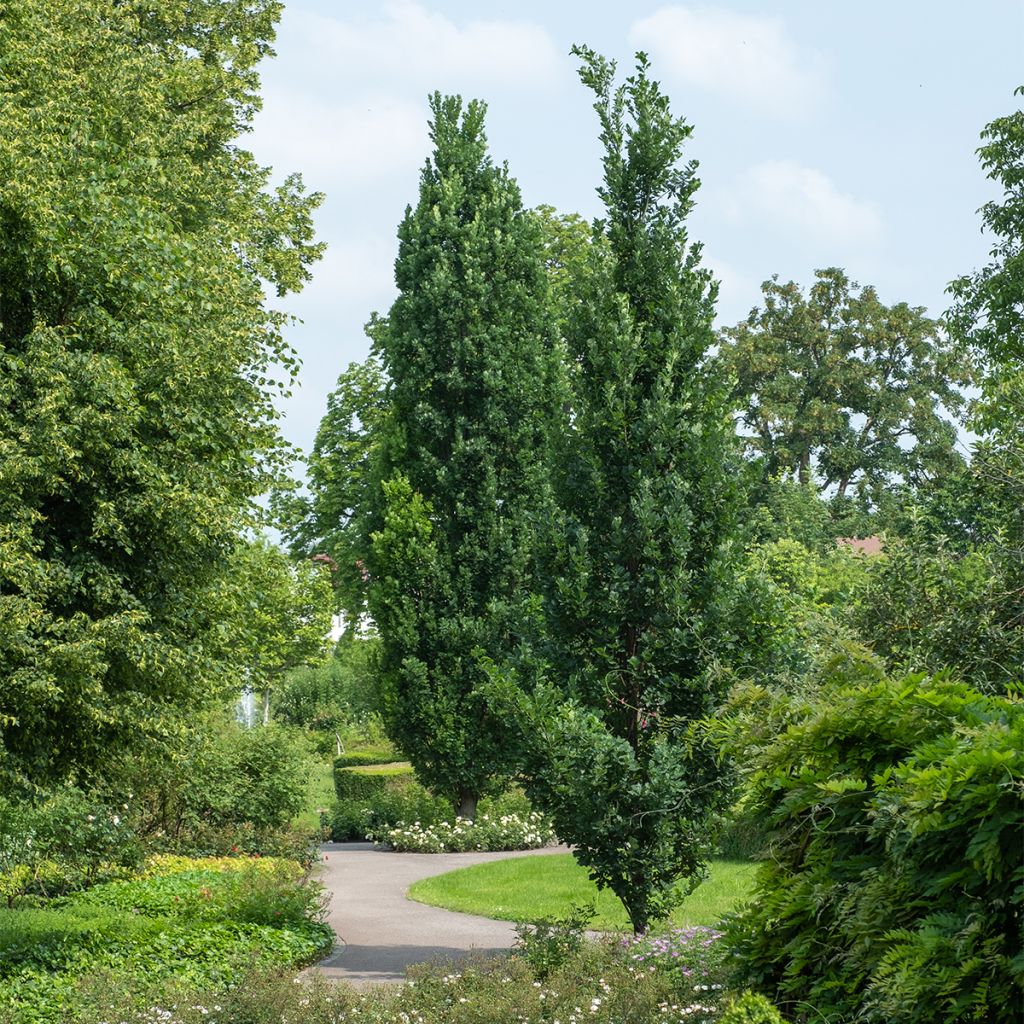

Quercus robur Fastigiata Koster
Quercus robur Fastigiata Koster
Quercus robur Fastigiata Koster
English Oak, Common Oak
This item cannot be shipped to the selected country
Oversize package delivery charge from €6.90
Delivery to Corse prohibited
More information
Schedule delivery date,
and select date in basket
This plant carries a 24 months recovery warranty
More information
We guarantee the quality of our plants for a full growing cycle, and will replace at our expense any plant that fails to recover under normal climatic and planting conditions.
Oversize package: home delivery by special carrier from €6.90 per order..
Express home delivery from €8.90.
Delivery to Corse prohibited: UE law prohibits the import of this plant from mainland France to Corse as part of the fight against Xylella fastidiosa. Please accept our sincere apologies.
More information
Does this plant fit my garden?
Set up your Plantfit profile →
Description
Quercus robur 'Fastigiata Koster' is one of the best varieties of fastigiate oak to plant in avenues or as a specimen. This improvement of 'Fastigiata' forms a tree with a more regular and narrower habit, columnar, widening at its base over time to form a pyramid that is both slender and dense. Its marcescent foliage remains attached to the branches until the new leaves appear in spring. It is less susceptible to powdery mildew than that of other cultivars. Remaining decorative until late in the season, this native tree complements hedgerows beautifully. Its relatively moderate growth is suitable for medium-sized gardens as well as large gardens. It is a very robust and hardy tree that only fears drought and poor, shallow soils.
The common oak, also known as the English oak, belongs to the family Fagaceae. It is native to a large part of temperate Europe. This species appreciates sub-oceanic to oceanic or more continental climates, which are relatively wet. It is a very common tree in our plains and low-altitude hills, but rare in Mediterranean regions, which are too dry and hot. In its natural environment, it can reach a height of 50 m (164ft) with a spread of 25 to 30 m (82 to 98ft), while its trunk can measure up to 2 m (7ft) in diameter. In our gardens, it will reach an average height of 27 m (89ft) with a spread of 20 m (66ft). With a relatively exceptional longevity, this oak can live up to 2000 years according to some estimates. Deciduous oaks have the advantage of producing a good and abundant soil, which is favourable for the growth of plants that germinate under their cover.
Quercus robur 'Fastigiata Koster' is a clone of 'Fastigiata' obtained through vegetative propagation. This oak's growth is quite fast. Its habit is initially compactly columnar and then widens at the base to form an erect pyramid 15 m (49ft) tall and 3 m (10ft) wide. The trunk, rather short, is covered with initially green and smooth bark that becomes dark grey, thick, and deeply fissured. The crown is conical and dense. Its young branches are glabrous, reddish-brown, and shiny. The late deciduous foliage consists of alternate, soft, obovate leaves that are larger than those of the species. Each leaf is divided into 5 to 7 pairs of asymmetrical rounded lobes, separated by relatively deep sinuses. The base of the lamina is narrow and has 2 small lobes. The colour of the lamina is a dark bluish-green on the upper side, with the lower surface being paler. The leaves turn reddish-brown, quite late in autumn, and remain attached until spring. This oak flowers in April-May, shortly after the leaves appear, on the annual shoots. The male inflorescences are elongated, pendulous catkins, tinted yellow. They are produced on older branches. The female flowers give way to ovoid and elongated acorns, measuring 1.5 to 3 cm (1in) in length. They are often grouped in pairs or threes and attached to a long peduncle. A cupule covered with scales covers one-third of the acorn. The colour changes from green to brown at maturity, in September and October. The root system of this tree is deep and powerful, with both a taproot and widespread lateral roots, providing a solid and durable anchorage in deep and compact soils.
The 'Fastigiata Koster' oak is an ornamental tree in all seasons, its compact columnar silhouette makes it a versatile garden tree. It can be planted individually or in avenues, in a sufficiently large area to accommodate it. It also provides pleasant shade and a refuge for small wildlife. Its fruits, sometimes produced in abundance, feed small animals such as squirrels and jays. It can be associated, for example, with maples, beeches, limes, and Sophora in a large park.
Report an error about the product description
Quercus robur Fastigiata Koster in pictures
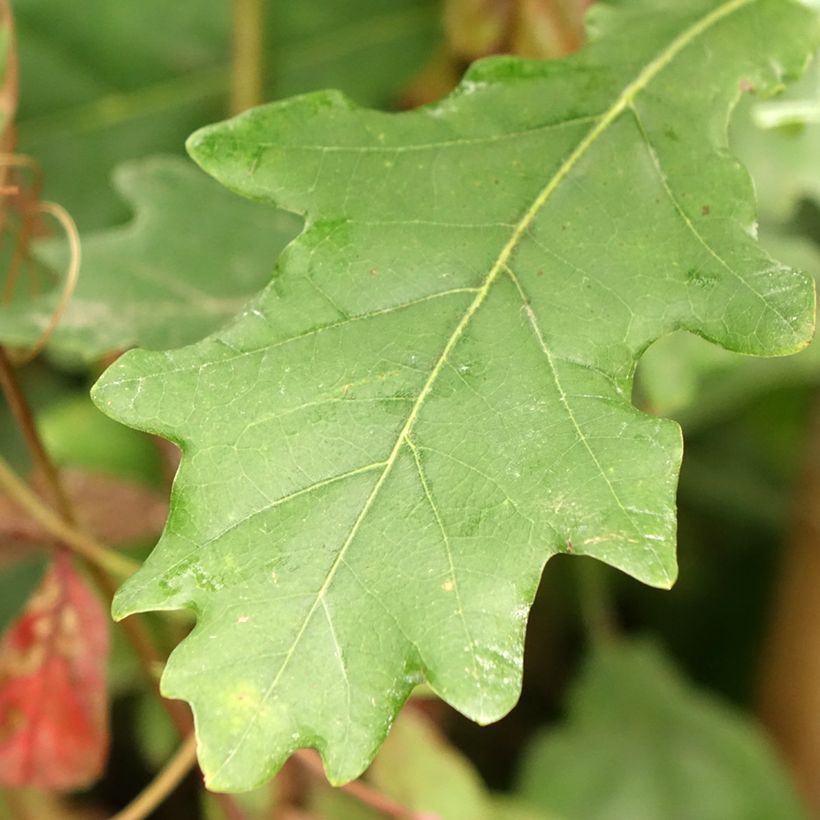

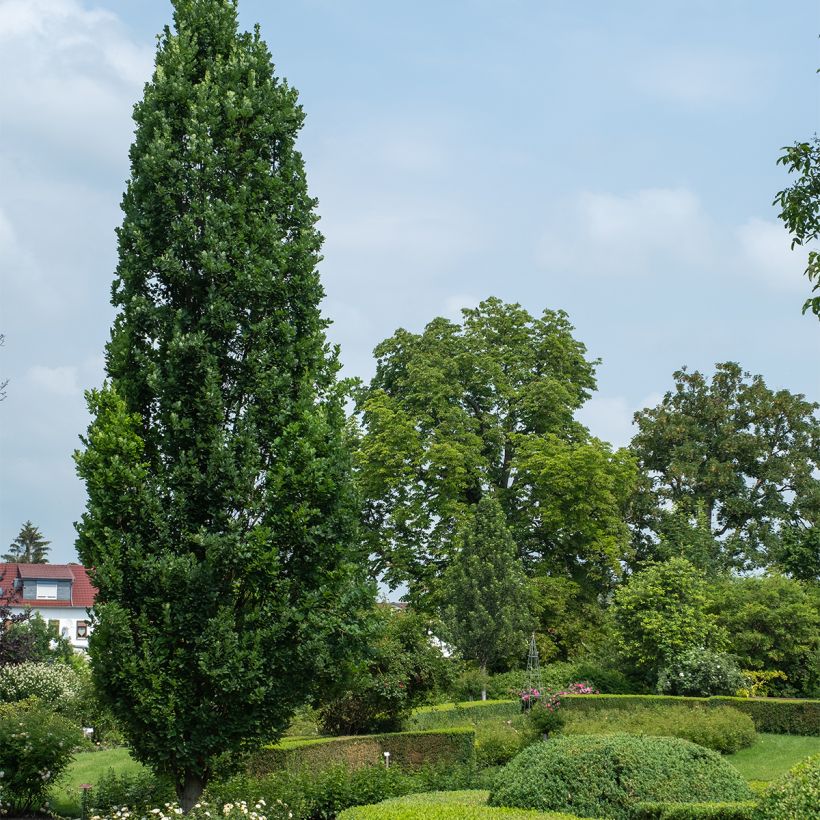

Plant habit
Flowering
Foliage
Botanical data
Quercus
robur
Fastigiata Koster
Fagaceae
English Oak, Common Oak
Cultivar or hybrid
Other Oak
Planting and care
Quercus robur grows in ordinary soil, which is deep, moist, preferably clay, slightly chalky, neutral or slightly acidic. Once established, this tree with deep roots can withstand normal summers and can do without watering. This oak tree succeeds almost everywhere, except, in the Mediterranean region and in the Southern Alps. It appreciates moist, but well-drained soils, where its growth will be faster. It prefers very sunny and open positions. Place a sturdy stake to help it establish, watering well and then let nature take its course. It is a tree that, once established, requires very little maintenance except for the removal of dead wood. It is not very susceptible to diseases, except powdery mildew.
Planting period
Intended location
Care
This item has not been reviewed yet - be the first to leave a review about it.
Trees for small gardens
Haven't found what you were looking for?
Hardiness is the lowest winter temperature a plant can endure without suffering serious damage or even dying. However, hardiness is affected by location (a sheltered area, such as a patio), protection (winter cover) and soil type (hardiness is improved by well-drained soil).

Photo Sharing Terms & Conditions
In order to encourage gardeners to interact and share their experiences, Promesse de fleurs offers various media enabling content to be uploaded onto its Site - in particular via the ‘Photo sharing’ module.
The User agrees to refrain from:
- Posting any content that is illegal, prejudicial, insulting, racist, inciteful to hatred, revisionist, contrary to public decency, that infringes on privacy or on the privacy rights of third parties, in particular the publicity rights of persons and goods, intellectual property rights, or the right to privacy.
- Submitting content on behalf of a third party;
- Impersonate the identity of a third party and/or publish any personal information about a third party;
In general, the User undertakes to refrain from any unethical behaviour.
All Content (in particular text, comments, files, images, photos, videos, creative works, etc.), which may be subject to property or intellectual property rights, image or other private rights, shall remain the property of the User, subject to the limited rights granted by the terms of the licence granted by Promesse de fleurs as stated below. Users are at liberty to publish or not to publish such Content on the Site, notably via the ‘Photo Sharing’ facility, and accept that this Content shall be made public and freely accessible, notably on the Internet.
Users further acknowledge, undertake to have ,and guarantee that they hold all necessary rights and permissions to publish such material on the Site, in particular with regard to the legislation in force pertaining to any privacy, property, intellectual property, image, or contractual rights, or rights of any other nature. By publishing such Content on the Site, Users acknowledge accepting full liability as publishers of the Content within the meaning of the law, and grant Promesse de fleurs, free of charge, an inclusive, worldwide licence for the said Content for the entire duration of its publication, including all reproduction, representation, up/downloading, displaying, performing, transmission, and storage rights.
Users also grant permission for their name to be linked to the Content and accept that this link may not always be made available.
By engaging in posting material, Users consent to their Content becoming automatically accessible on the Internet, in particular on other sites and/or blogs and/or web pages of the Promesse de fleurs site, including in particular social pages and the Promesse de fleurs catalogue.
Users may secure the removal of entrusted content free of charge by issuing a simple request via our contact form.
The flowering period indicated on our website applies to countries and regions located in USDA zone 8 (France, the United Kingdom, Ireland, the Netherlands, etc.)
It will vary according to where you live:
- In zones 9 to 10 (Italy, Spain, Greece, etc.), flowering will occur about 2 to 4 weeks earlier.
- In zones 6 to 7 (Germany, Poland, Slovenia, and lower mountainous regions), flowering will be delayed by 2 to 3 weeks.
- In zone 5 (Central Europe, Scandinavia), blooming will be delayed by 3 to 5 weeks.
In temperate climates, pruning of spring-flowering shrubs (forsythia, spireas, etc.) should be done just after flowering.
Pruning of summer-flowering shrubs (Indian Lilac, Perovskia, etc.) can be done in winter or spring.
In cold regions as well as with frost-sensitive plants, avoid pruning too early when severe frosts may still occur.
The planting period indicated on our website applies to countries and regions located in USDA zone 8 (France, United Kingdom, Ireland, Netherlands).
It will vary according to where you live:
- In Mediterranean zones (Marseille, Madrid, Milan, etc.), autumn and winter are the best planting periods.
- In continental zones (Strasbourg, Munich, Vienna, etc.), delay planting by 2 to 3 weeks in spring and bring it forward by 2 to 4 weeks in autumn.
- In mountainous regions (the Alps, Pyrenees, Carpathians, etc.), it is best to plant in late spring (May-June) or late summer (August-September).
The harvesting period indicated on our website applies to countries and regions in USDA zone 8 (France, England, Ireland, the Netherlands).
In colder areas (Scandinavia, Poland, Austria...) fruit and vegetable harvests are likely to be delayed by 3-4 weeks.
In warmer areas (Italy, Spain, Greece, etc.), harvesting will probably take place earlier, depending on weather conditions.
The sowing periods indicated on our website apply to countries and regions within USDA Zone 8 (France, UK, Ireland, Netherlands).
In colder areas (Scandinavia, Poland, Austria...), delay any outdoor sowing by 3-4 weeks, or sow under glass.
In warmer climes (Italy, Spain, Greece, etc.), bring outdoor sowing forward by a few weeks.

































